Avios is the common currency for IAG airlines, of which British Airways is the largest. Iberia contributes significantly, Aer Lingus is a very small portion of the program. At IAG’s Capital Markets Day their presentation revealed quite a bit about their loyalty scheme and customer behavior.
There are just 9 million active members on the platform out of 34 million total members, a great reminder that when programs release their total membership that’s everyone in their data file who ever joined not folks who are engaged in the program.
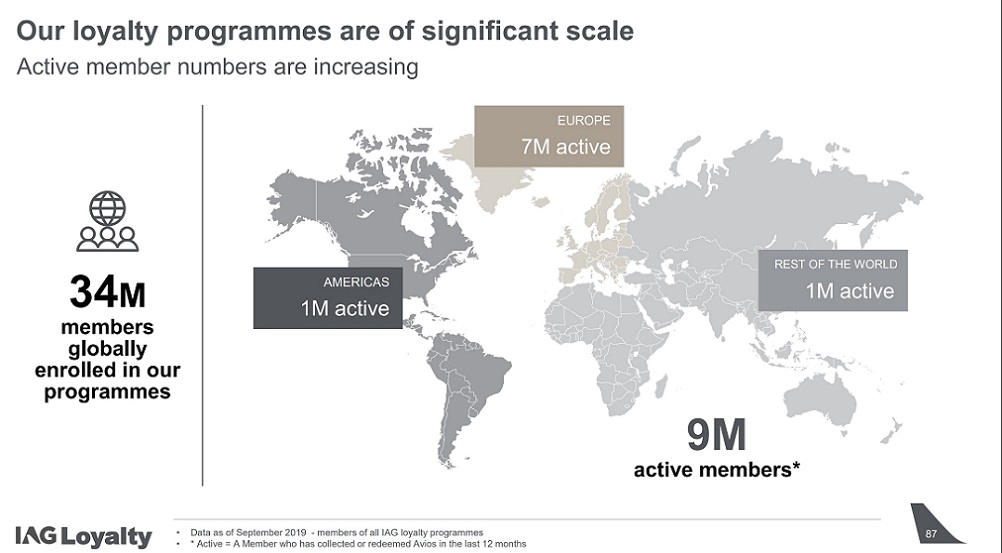
It’s interesting that 1 million active members are in the Americas, that actually seems low compared to total British Airways revenue originating in the U.S. – a fact that must be attributable to U.S. customers coming from AAdvantage.
More Avios are issued than redeemed, and IAG expects the rate of issuance to grow faster than the rate of redemption (‘free money’).
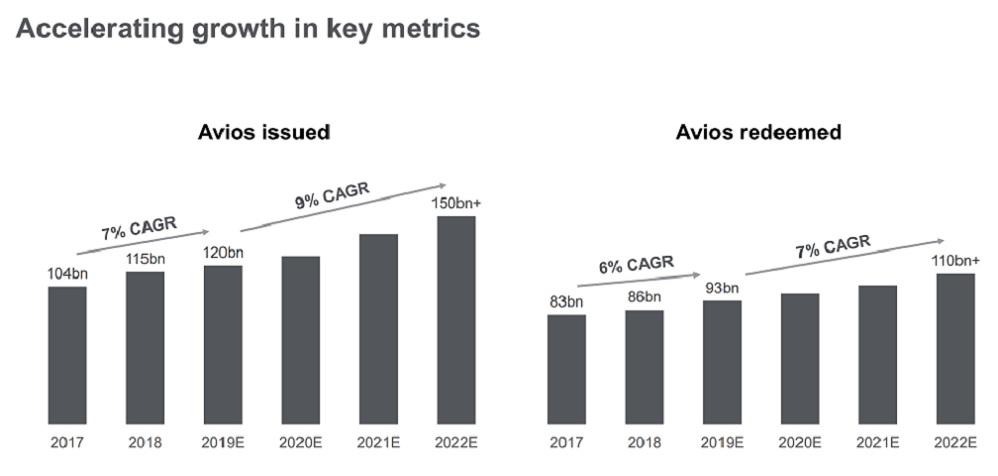
Even though there are strict limits on interchange in the U.K., and therefore not a great opportunity to drive profits from credit card deals there, the business is able to generate significant cash especially for its size. It does this in part through card deals outside of European markets, and in part through its other retail and banking partnerships.
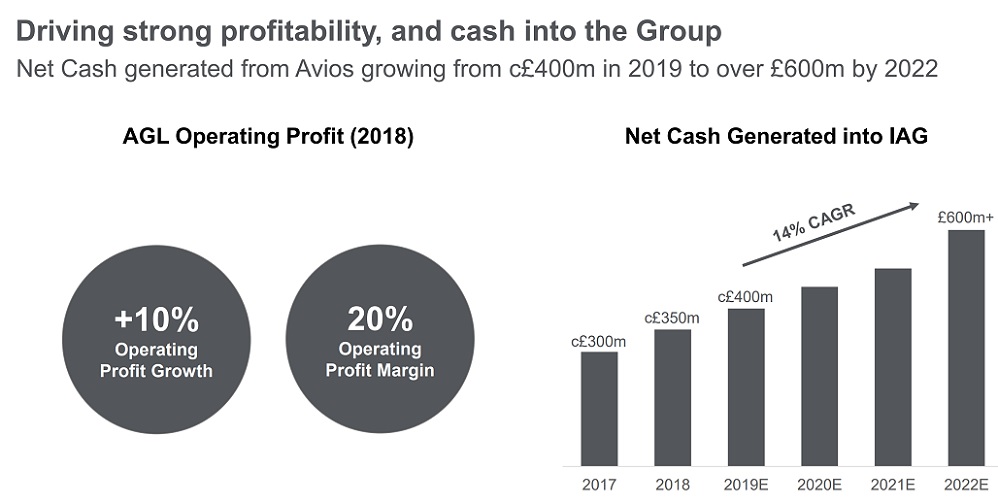
When they talk about ‘headroom for growth’ in the program they’re really sharing how the program underperforms expectations so they should be able to improve. It’s impressive how low a proportion of airline revenue is driven by program members today.
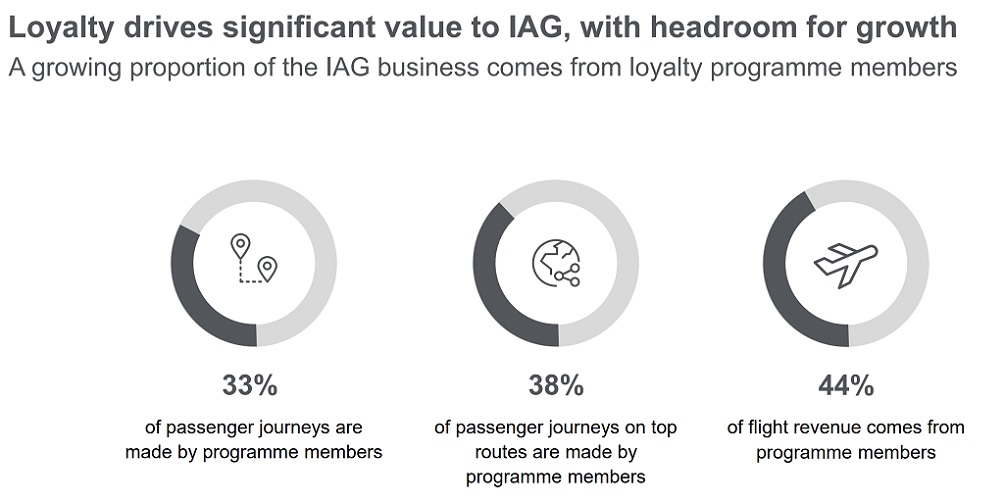
Like in the U.S. more points are issued from sale to partners than awarded for flying — but it’s a lower percentage, U.S. peers average around two-thirds of miles sold and Avios programs are merely at half.
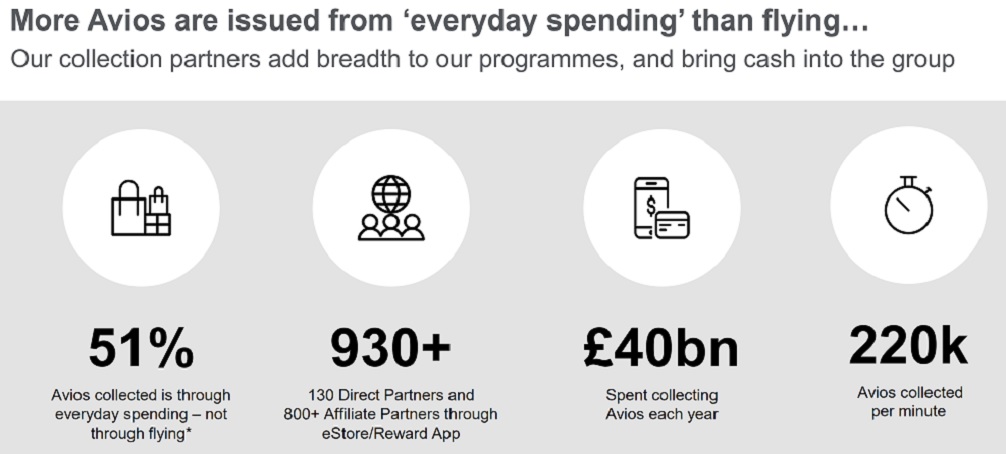
Despite opportunities to redeem Avios for any number of things, travel remains the vast majority of redemptions – representing about 95% of all points redeemed.
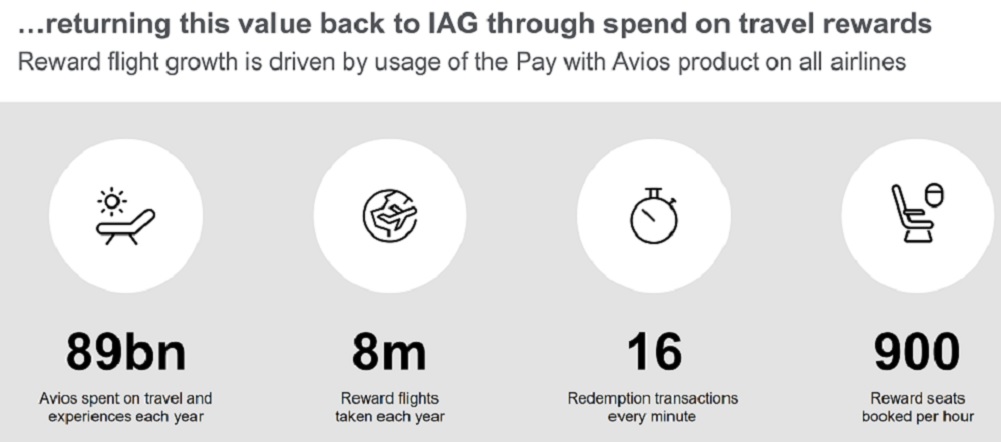
Customers prefer spending more miles in exchange for being charged lower fees.
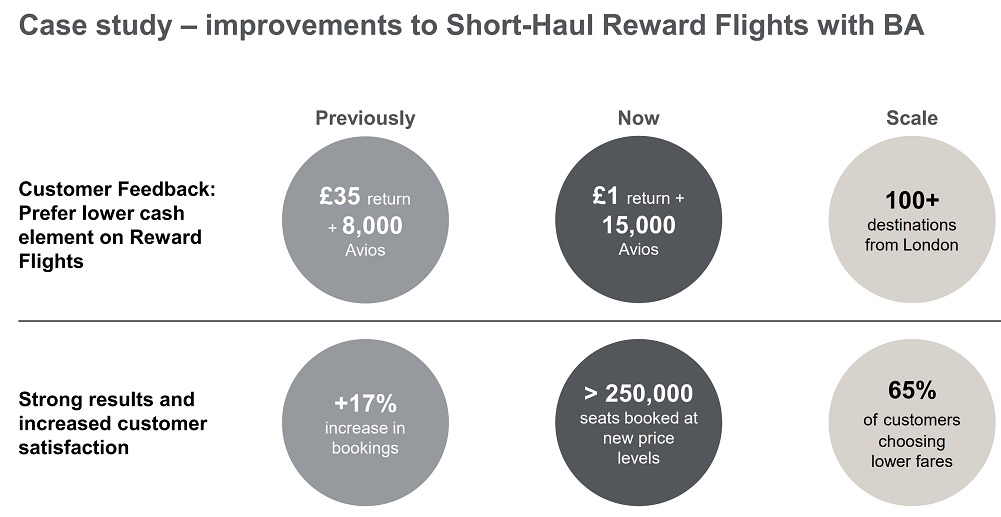
Despite signing a binding MOU to join the Avios currency several years ago it seems clear that Royal Air Maroc is no longer on a path to do so, despite being about to join oneworld. The airline is not mentioned anywhere in the presentation.
Avios is a driver of profit, strong relative to size and regulation, but does less of a good job driving airline revenue that one would expect. Most program members are inactive, which isn’t surprising, and members prefer inflated award costs of cash co-pays (fuel surcharges).


We keep our Chase BA card because it gives us a worthwhile discount on BA tickets, but we try otherwise not to put any spending on it anymore because Avios bookings attract huge surcharges, rendering the Avios considerably less valuable than the rebates from our Bank of America cards (which are augmented because of our deposit levels). Moreover, award flights do not count toward tier status. At some point we are going to have to reevaluate how much we want to maintain BA status and what to do with over 500K unredeemed Avios.
Like Tunisair & Air Algérie, Royal Air Maroc does most of its business with France, and all the VFR passengers travelling between their country and the former colony “owner”.
I do not see why it will need the avios system.
For sure it could help them to diversify the customer origin maybe.
But I am not sure the hassle of migrating to avios is worth it for Royal Air Maroc where maybe most of their passengers do not care about of a FFP and are loyal in some sort of it to RAM.
It could be other seasons too.
I know Avios get bashed a lot, but their quirkiness is their best value. If they were structured like most other frequent flyer programs, it would just be an “also ran”. The award sweet spots, and their occasional shopping portal earnings, make them relevant.
Well said Pat,
Same for me. I’d rather have a group on “quirky” rewards programs with differing sweet spots to promiscuously leverage against my travel needs than a homogenous set of award programs that are all basically the same flatline across the board when searching for travel.
I’d be happy to know more about the “sweet spots” in order to bring down our huge backlog of Avios. A possible article? Subject matter for reader posts?
The carrier imposed scamcharges are the main reason my engagement with the program is spotty. Sure I’ll occasionally see a place where Avios make sense, and I’m glad I have some around, but I feel no motivation to accumulate a lot of them.
Is “opens the kimono” really a necessary phrase here? Ew.
@Edwared Lane… think AA hubs. For example, there’s good value from MIA to Caribbean, Central America, and South America.
Gary, I find the “kimono” phrase offensive and would hope you wouldn’t use it in the future.
@Gary
“and members prefer inflated award costs of cash co-pays (fuel surcharges”
Prefer to what?
Just to be precise, they don’t say “1M of active users in the US”, the chart clearly say “Americas”, i.e. North+Central+South combined.
If you have expiring avios miles and buy new avios miles for your mileage account will the expiring avios miles automatically extend?
@Michael que: That’s a Google question.
@Edward Lane : The usual trick is to fly on Iberia across the Atlantic and change in Madrid. Much lower carrier surcharges.
@Meara: “Is “opens the kimono” really a necessary phrase here?”
Are complaints about grammatical flourishes really necessary here?
@Dan: “Gary, I find the “kimono” phrase offensive and would hope you wouldn’t use it in the future”
But that is because you are ignorant of its meaning in this context:
https://www.investopedia.com/terms/o/open-kimono.asp
Also, you don’t have a right to not be offended. Expect it all the time in any society with the slightest tolerance of independent thought.
I’m offended that you are ignorant, but I can’t change you from that, can I? I have to live with it.
Gee, @L3, even in your own article that you cite, there’s this:
“With the rise of political correctness in modern culture, business jargon is one of the last places where controversial phrases are being used regularly. Why? Because business jargon is the language of intense financial competition, and such business buzzwords occasionally veer into racism, sexism, or (in the case of a current favorite “open kimono”) a combination of the two.”